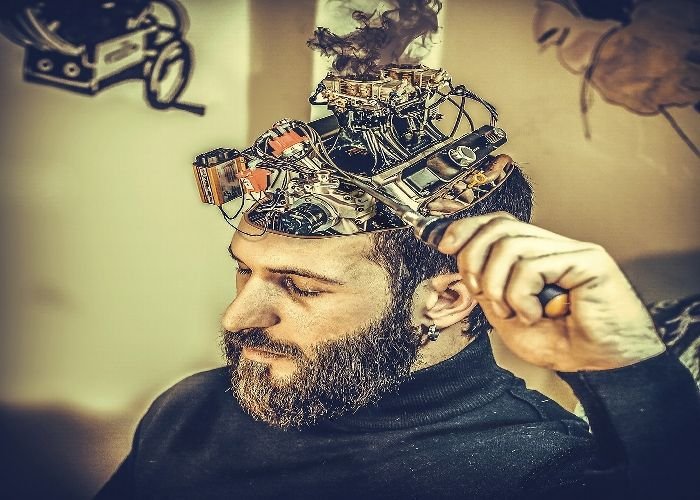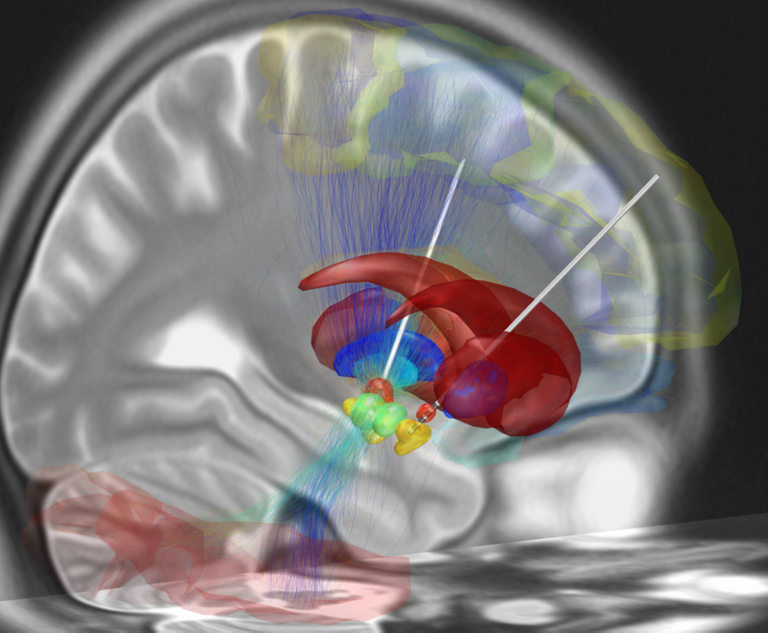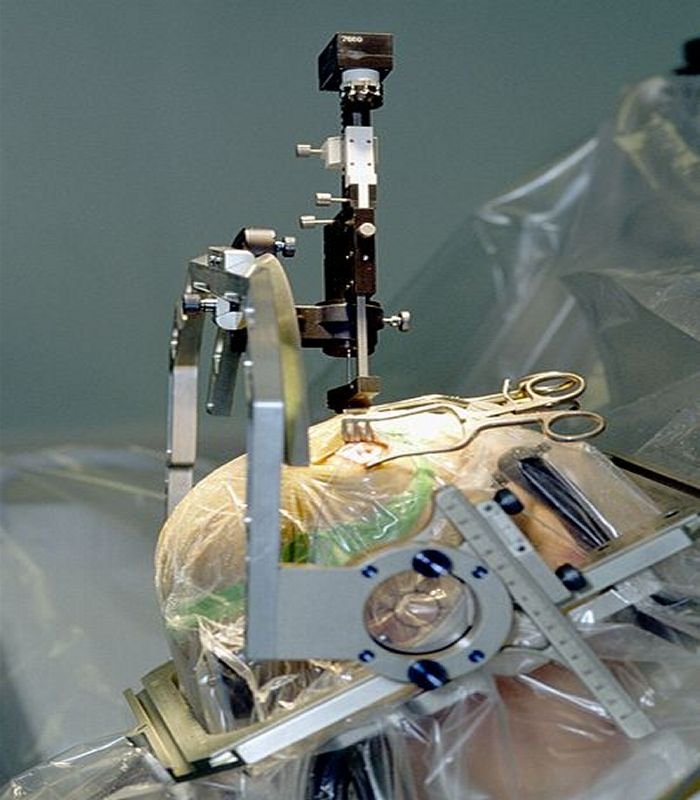Finding a way to enhance the memory recalling ability of human brain using some forms of synthetic materials have fascinated scientists and researchers for a long time, after similar attempt had been successfully carried out in animals.

[Image source: Pixabay CCO Licensed)
For the first time in this new effort, scientists at the University of Southern California and the Wake Forest School of Medicine found the same is true for human beings. In the study which was reported in New Scientist, the researchers claimed that they were able to improve the memory performances of the study participants (by 25% — 30%) by inserting brain electrodes into the hippocampus (an area associated with memory in the brain) region of their brains. The team gave a presentation during the 2017 meeting of the Society for Neuroscience in Washington DC.
Mechanisms of memory formation, memory loss and why Alzheimer's patients cannot recall long-term events
Memory is formed by brain action when it receives sensory input and transformed it into electrical signal which is made to travel through multiple regions of the hippocampus. The signal is encoded and re-encoded at each and every region of the hippocampus as it travels through the multiple regions. By the time it passes through the final region, it has been totally translated in a different signal altogether that is then sent off for long-term storage.

[Deep brain stimulation electrode placement reconstruction. Source: Wikimedia commons. Author: Andreashorn. CC-BY 4.0 Licensed]
However, in a situation where there is damage along the path of this signal, then such damage may prevent translation of the signal and hence blocking the possibility of forming a long-term memory. This explains why people with hippocampal damage, like Alzheimer's patients, have difficulties forming long-term memories anew. However, they are able to recall events that happened a long time ago because those memories had already being translated into long-term memories before the damage occurred.
In the study, researches were able to find a way to mimic how a memory is translated from short-term memory into long-term memory. This they achieved with the aid of a prosthetic implant that is designed to bypass a damaged region of the hippocampus and provide the next region with memory that has been correctly translated.
“We are writing the neural code to enhance memory function. This has never been done before."
"The implant is there to strengthen the normal pathways the brain uses to create a memory. Whenever we receive a stimulus from the outside world, a series of complex electrical signals travel through several regions of the hippocampus, the memory center of the brain. As it passes through this region, the signal is changed to something different and can be sent off to the long-term memory repository."
"The implant is simply mimicking what the hippocampus naturally does. In doing so, it’s boosting the memory capabilities of the individuals." Said Dong Song, who is one of the Study authors. Source
_of_Nucleus_Basalis_of_Meynert.jpg)
[DBS of nucleus basalis. Source: Wikimedia commons. Author: Zhang Q. CC BY-4.0]
The experiment
Motivated by the success of the initial experiment involving rabbits in which it was discovered that inserting implants into a certain region of their brain helped them to recall things better, scientists set out to discover if the same was true for humans beings. In other words, the team was interested to know if stimulating a certain area of human brain with a sort of minor electrical impulses could enhance memory recall ability in humans.
To do this, the researchers were able to convince about 20 epileptic patients who have been slated to undergo therapeutic electrode implantation procedure into agreeing that brain prosthetic be inserted into their brains as well during the same procedure. The experiment aims to measure how the implanted electrodes could influence two different kinds of memory: short-term memory and working memory. Short-term memory relates to recently occurred events while working memory relates to events as they occur currently.
The procedure is made up of two phases. In the first phase, brain electrodes are inserted into the hippocampus region of the volunteers brains and then used to listen for and record electrical impulses generated while the volunteers are made to engage in some memory exercises. The aim here is to be able to record and pinpoint the areas of the brain that are mostly impacted when the volunteers performed a particular memory task. These areas are indicated by a highly differential marked light signal.

[Insertion of an electrode during deep brain stimulation. Source: Wikimedia commons. Author: Unknown. CC BY-SA 3.0]
The second phase involves mimicking the pattern of the signal that was recorded in phase one by sending tiny pulse of electrical impulses to stimulate the electrode implant in the hippocampus region of the brain.
In looking at all the data from all of the patients, the researchers reported that they found brain stimulation via implants led to an average 15 percent improvement in short-term memory and a 25 percent improvement in working memory across all the volunteers—similar to the results found in test animals. Source
Conclusion
This memory-enhancing technology, no doubt, will be a saving grace in the treatment of Alzheimer's patients and other individuals suffering from varying degrees of memory disorders. For instance, researchers can use signal patterns generated off a healthy individual as a guiding standard to stimulate and restore normal memory functionality of victims of memory disorders.
...the study has managed to accelerate the creation of a prosthetic device capable of “successful memory facilitation in humans”. Much like the implants in the brains of epileptic patients, the new memory-enhancing prosthetics have a variety of therapeutic applications for memory disorders.
References for further reading
Brain Implant successfully boosts memory for the first time ever
Brain prosthesis aims to provide breakthrough for people struggling with memory loss
Brain Implant appears to boost memory in humans
Brain Implant tested in human patients found to improve memory recall
A new implant is being developed for enhancing human memory
Yours truly,
@eurogee
Follow @eurogee, the Steemit's Witness Voting Advocate & Host, Show Us Your Witnesses Weekly Contest. Follow @euronation, An International Support Scheme For New And Struggling Steemians
Join us on Telegram and whatsaap through the below links:

Don't Exit Without Voting For Witnesses!
No Witnesses = No Steem Blockchain; If You Truly Love Here, Vote For Witnesses NOW!
Click This Link To Vote Now
Witnesses are equivalent to life and blood of steem blockchain. Without them, the blockchain will seize to function and we will all be stranded here. Click here to read more on why it is important to vote for witnesses


The borg. Resistance is futile.
I serious can not wait to have implants. It would be even cooler if we could somehow upload information for our brains to access. Matrix style learning for the win..
Imagine the possibility of learning a new language with the time it takes, in seconds or minutes, to upload the language skill to our brains. It looks pretty exciting.
Not only a language, entire skills learned in just seconds. Just like in Matrix where they needed to pilot a helicopter and they learned how to do that in seconds.
That will entirely change the concept of school as we know it today. Want a PhD in physics? Just wait some seconds after you've paid for the software to have it uploaded :)
My dream since I first saw the movie. How much longer do I have to wait. :)
😂🤗
This is a great research work. Well written and points clearly cited.
Thanks Oga Pen
Hmmm
the brain is now like an SD card
Uploading and Downloading to & fro the memory
This is interesting
Hahaha you got me cracked up
You are right. In the future I think diseases will be a thing of the past, and hopefully even dying also becomes a thing of the past.
Yes sir. Thanks for visiting
Wow...technology is the future. So, with this technology, no more memory lost...its great.
Sure boss
The idea of having something stuck deep into my brain is a scary thought. You would need such precision, I guess that is where machines come in.
It would be like having a normal surgery. Not gonna be a painful procedure
Another breakthrough sir eurogee 😘☺️
I have been incredibly fascinated since I have been attentive to this type of innovation for years, it is a significant advance for neuroscience, and of course, for humanity, however; I have a question, what kind of problems does this brain implant carry? The use of this prosthesis causes some cerebral desgate? Thanks for sharing, we read!
Interesting article friend, every time we learn more with you, thanks for sharing your wisdom, God bless you always ..
Regards...
Wow, this will be a great lift for us all. This could prove ground breaking as many other part of the brain could be improved on leaving us with fast and improve understanding.
This is quite well researched and presented. We'll done sire.